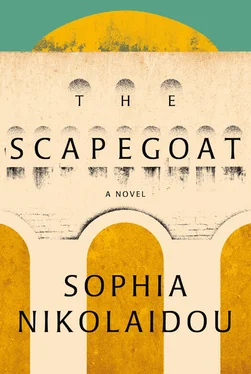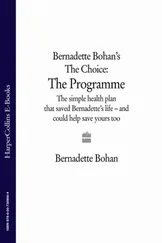A combination of Greek provincialism and nationalistic narcissism sustained the vicious cycle of the Greek educational system — which, rather than opening up toward the outside, systematically closed in on itself. Kids were raised in a corral where knowledge was kept separate from empirical observation, and where learning was presented as a kind of torture, rather than an exciting or pleasurable adventure. They were taught to have an uncritical respect for textbooks and for a teacher’s authority. Any impulse toward independent thinking was crushed before it ever raised its head.
That was why Minas had rebelled. His other teachers called it adolescent anti-conformism . And they had another, easy psychological explanation, which Souk more or less agreed with, though he knew there was more to it than that: they’d all seen Teta in action and had an inkling of how much pressure she put on Minas. For most of them a single conversation with her was enough to make them shake their heads and exchange meaningful looks of despair with their colleagues. Teta had staked her life on her son, as was clear to anyone who had experience dealing with parents.
But Souk knew there were deeper roots to Minas’s violent reaction to the institutional framework of education. Sure, Teta was annoying, but that wasn’t a sufficient explanation. Minas had taken on the system itself, and was sure to get what was coming to him. His response was irrational, physical, and absolute.
No matter how hard Souk tried to approach Minas calmly and neutrally, there was always a note of exasperation in his voice. Even he, who seemed on the surface to have made peace with his decisions and had learned to limit his intellectual ambitions to this sheepfold of a school, continued to be enraged by the idea of failure. He wanted Minas to succeed. He’d have forced him if he could.
Souk knew argumentation would have no effect whatsoever, so he tried to get Minas emotionally involved in a case that was a lost cause from the start. Most people considered Soukiouroglou distant and detached. None of them could have imagined how he caught fire in the classroom. It wasn’t just his sardonic wit, his cautious cynicism, or his emphatic precision, the combination of a strict literalism and the most unexpected metaphors. It was above all the way he drew, sometimes in an almost punishing manner, on the emotions — his audience’s but also his own. He knew how to touch a chord, always at precisely the right moment. He managed to mine those emotions the students tried so hard to hide behind their silly grins and stupid comments. He ruled his class like an enlightened despot — which is to say with an oppressive hand disguised as something else. After a year in his class, students had difficulty accepting a different teacher.
Of course he hadn’t lived his own life nearly enough. He’d shielded himself from the experiences that had burned so many others his age. But in the classroom he could finally be himself, become the person he believed himself to be. Most of his students were entranced by this transformation, swept up and carried off by the wave of his performance. Yet when the bell rang they were left hanging. The teacher’s thinking and rhetoric may have been the creations of an austere geometry, but the tsunami of his explosions — part performance and part collective psychotherapy — elicited their admiration while also striking them dumb. They set out on the path he carved for them and didn’t dare raise their heads.
Very few ever refused to dance to the beat of his drum. Minas was one of them. And it was strange, because Minas lived and breathed for Souk’s sake. Yet he kept his core well protected, didn’t let it be crushed by external pressures. Minas’s strength had been a continual surprise to the teacher, from his first year of middle school until today. Yet Minas also annoyed Souk to no end, precisely because his defenses were impossible to break through.
Minas was destined from the crib to be every teacher’s favorite. He knew how to learn from others, from real-life situations. Souk tried to explain to the others what Minas already knew well, because he’d been taught it at home: in learning a book isn’t enough, you need a mind, too . A mind to distil information, to bring things together, to settle on a point of view. There’s no need for students to become carbon copies of their teachers , Souk repeated at every opportunity. He used Plato and Aristotle as his example. He loved telling the kids at school — who listened carefully, though who knows how much they understood — that Plato’s absolute idealism, which denied the senses all rights, had been overturned by his student, Aristotle. Sensory grounding, that was Aristotle’s upending of Platonic thought.
Minas listened in silence. A flammable adolescent but worthy interlocutor, he was intellectually tolerant yet obsessive about his ideas. Soukiouroglou loved him, but also found him hard to bear.
THE THINGS THAT HAPPENED BEFORE AND AFTER, AND THE THINGS THE OTHERS NEVER LEARNED
There are good endings and bad ones. In books, that is. In real life, things aren’t so simple, and the victims never get to say their piece. Yet those who judge shall also be judged. History is a boat whose hull is deep under water, and when it capsizes, everything is overturned. That’s what Soukiouroglou struggled to show them, with examples and radical claims.
When a top student who was considering military academy said something about the brutality of the Turks, calling on sources and eye-witness accounts, Souk — a third-generation refugee from Asia Minor with first-hand experience of victimization and loss, who certainly could have told his own stories of Turkish brutality, yet judged it a good opportunity for a stern lecture about objectivity, the chimera of so many historians — let loose on the boy.
— Let’s take the familiar case of an airspace violation, Souk said, and the students in the front row nodded. The other day, for instance. It was the third story on the news. The Greek minister made some statements, et cetera et cetera, he continued, feigning boredom. But if you spoke Turkish and could read Turkish newspapers, you’d see that their approach to the situation was different. They spoke about the obstruction of military drills, illegal infringement, and so on.
Souk himself spoke Turkish fluently — he’d learned from his grandmother — and so he quoted a few headlines with perfect pronunciation. That small bit of showing off made it all more enjoyable for him, like a peacock fanning its tail.
— So, he continued, not breaking stride, let’s say fifty or a hundred years from now a Belgian historian decides to write about the incident, and has those sources at his disposal. What objective reality can he offer?
— That the sky exists. And that maybe some airplanes flew through it.
Minas had spoken without raising his hand, a bad habit he’d had since middle school. Souk had chastised him for it countless times. Then last year Minas withdrew to the very back row and stopped speaking at all, and the class had lost its thrill for the teacher, became boring, even. But Soukiouroglou couldn’t encourage that kind of behavior. He ignored Minas’s comment and offered yet another example: how Greeks talk about the fall of Constantinople and the Turks about its conquest.
Ever since the fateful day of the presentation (which Minas considered a debacle and Soukiouroglou a teachable moment, while Evelina’s and Minas’s mothers agreed that it had been a huge waste of time), Minas had been an absent presence at school. Not that things had been much better before.
So much precious time wasted , Teta complained to Evthalia, the child’s energies spent on useless things, people shouldn’t play those kinds of games with a graduating senior . Evthalia didn’t have much to say in response — Teta was right, in a way, but then again the boy showed everyone what stuff he was made of , as Nikiforos had said. He stood his ground at a moment that would have destroyed so many others, even adults. They all had their degrees, and Minas was just a poor little eighteen-year-old in a General Education class. Which is to say, a nonentity.
Читать дальше












